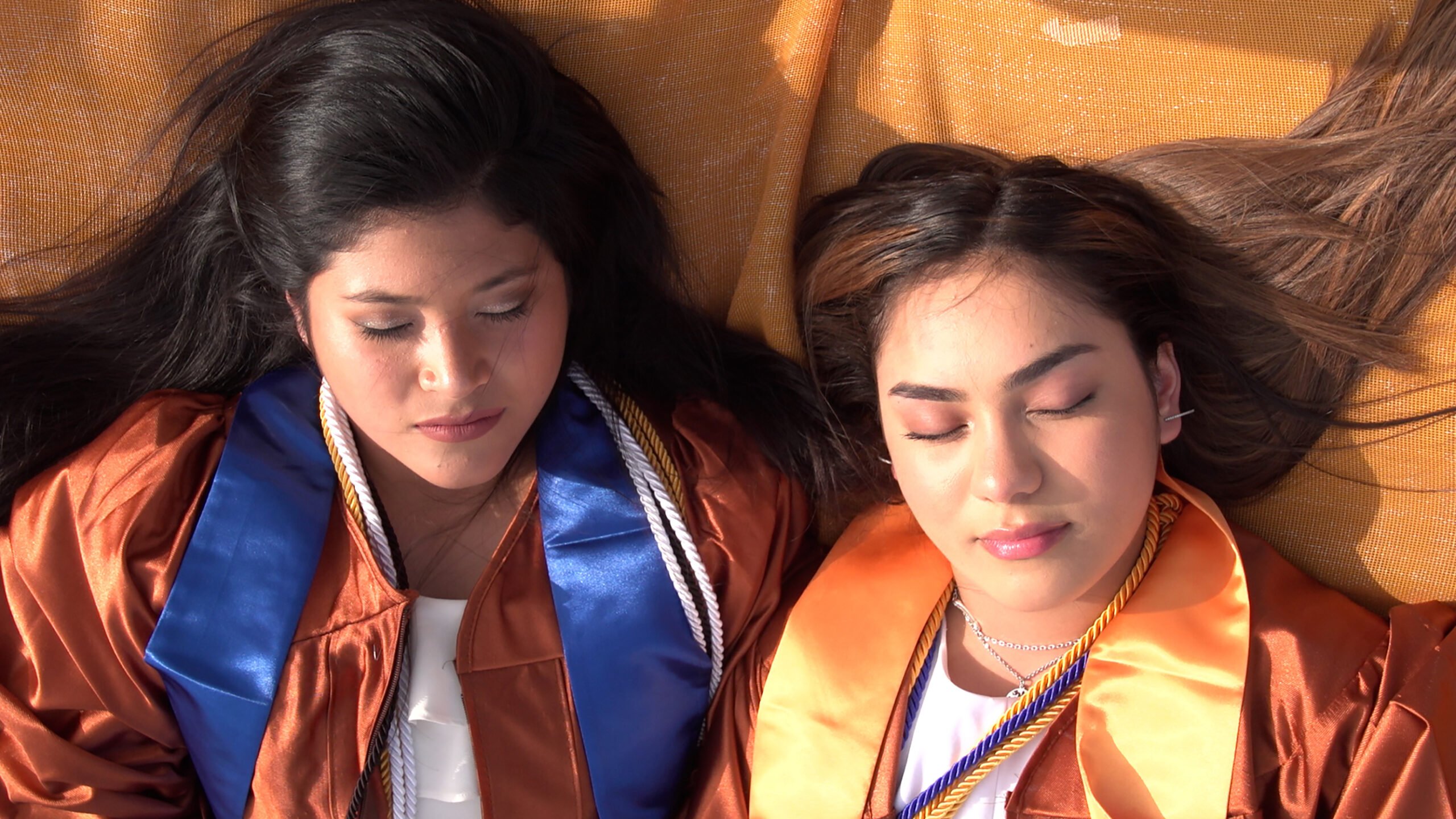The Flores siblings were supposed to leave their small Texas border town and make films together.
Robie Flores, a self-described “awkward Tejana” teen who just wanted to “get the fuck out” of Eagle Pass to reinvent herself, had dreams of making movies with her brothers, Paco, Alex, and Marcelo.
But their dreams were crushed when Marcelo, who went by Mars, died in 2015. He had recently graduated from the University of Texas at Austin’s Radio-Television-Film program and was only 23.

In the wake of her brother’s death, Flores returned home and reexamined her hometown through new eyes. This reappraisal is the basis of her new film, The In Between, an 82-minute feature documentary that premiered at South by Southwest (SXSW) in Austin on March 9. Using a combination of old footage recovered from Mars’ hard drives along with fresh film recorded by siblings in the wake of his death, The In Between serves as an homage to Mars’ memory, the culture of South Texas, and the Mexican-American youth who grow up there.
The film begins with a man and child on a hike-and-bike trail in Piedras Negras, across the Rio Grande from Eagle Pass, looking across the river at Shelby Park on the U.S. side, where Eagle Pass is hosting a festival. The camera pans to the international bridge, connecting the sister cities, and Flores introduces herself and her relationship to la frontera.
“I must have crossed this bridge a million times,” she recalled. “But the first time I remember was when I was five. That was when my brothers, the twins Mars and Alex, were born.”
Her parents had crossed to the Mexican side of the bridge the day before the twins were born, Flores continued, because the hospitals were better.
The In Between explores both the magical and the mundane aspects of border life: kayaking on the Rio Grande, Texas football and Friday Night Lights with team chants in Spanish, young girls dancing and dressed up in Selena’s iconic sparkly purple jumpsuit, teenagers dancing at quinceañeras, stands of nopales, and coyotes crossing the street. The kids on the border code-switch mid-conversation, and language serves as a tool for exploring identity and culture in Flores’ depiction of Eagle Pass. “¡Ya estás todo gringo!”, one young woman tells a little boy, who responded in English when spoken to in Spanish. In Flores’ version of the border, being too Americanized was considered embarrassing. When they were kids, her brothers “didn’t get the memo that it was way cooler to be Mexican,” Flores recalls.
The movie is also an exploration of universal human experiences, like grief and gratitude. Scenes from Flores’ late brother’s hard drives are interwoven with moments captured on film after his death, stitching together elements of the coming-of-age of Eagle Pass’ youth, then and now. In this film, there is no grandiose plot ending to spoil. Bearing witness to the cyclical journey itself is one of the points of watching the film.
In grief, Flores grasps for lessons. “APPRECIATE everything. Welcome the good. Welcome the ‘bad’,” her late brother Mars had scribbled out in a diary, which she held onto for years after his death before reading it. As she films her hometown and explores Mars’ old footage, Flores shares both her profound sense of loss and, at other times, gratitude. She learns something new with Mars again by studying moments he had previously captured. After Mars’ death, Flores began to document everything compulsively with her camera—which she contrasts with her brother’s approach.
In Flores’ Eagle Pass, the river (and the border) is not a geographical divide.
“Maybe it was never about memory for Mars,” Flores wonders out loud. “Maybe it was about being present and helping look at life more intently. I’ll never know.”
As the film nears its closing scene, we see intimate familial moments before Mars’ death: the twins’ birthday and old footage of Mars and Alex at a football stadium, donning burnt-orange letterman jackets with “Flores twins” emblazoned on the backs.
The In Between paints a portrait of Eagle Pass and Piedras Negras through the eyes of those who have loved and lost there. It is a love letter to la frontera—to the people of these sister cities straddling the U.S.-Mexico divide. The movie’s depiction of the border offers a real look at the community that calls the place their home.
Last month, I visited Eagle Pass for a story. When I was in town, vigilantes and nativists roamed the streets and dined in the town café, jeering at local activists. Shelby Park was closed off to the general public, and the U.S. side of the border was lined with shipping containers, concertina wire, and a nearly hundred person show-of-force shield of National Guard soldiers, ready for Governor Greg Abbott’s photo op. The town had been flooded with militarization, law enforcement personnel, border theater politics, and anti-immigrant narratives.

Flores’ film takes its audience to the real Eagle Pass—not the one with concertina wire but the unimpeded, publicly accessible Shelby Park. Flores and her brother Alex giggle and capture their community verité-style, with families singing during backyard cookouts and fishing in the Rio Grande. In Flores’ Eagle Pass, the river (and the border) is not a geographical divide that signals danger but a “magical portal”—and a character unto itself that brings communities on both sides together.
In these times of manufactured paranoia about border security, we need fewer right-wing pundits who don’t know anything about life on the border, and more art like Flores’ film.







